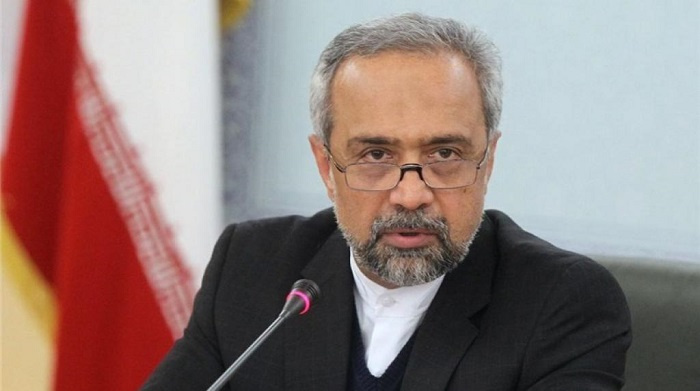Iran Realized All Economic Goals and More in Nuke Talks: Nahavandian

Iran says it has established an economic team besides its team of politicians from the very beginning of the nuclear talks. Mohammad Nahavandian, President Rouhani’s chief of staff, says the group regularly met in Tehran and was represented in the negotiations. He said they did the talks on economic details, according to an interview published in Diplomat monthly.
“We managed to remove 300 out of 500 real and legal entities from the sanctions blacklist and we bargained over each of them,” Nahavandian told Diplomat, noting that Iran sought a maximal number of removals.
“Other issues brought up during the negotiations were those of financial institutes, the diction used in the final text of the JCPOA and that we could include auxiliary services in all the paragraphs,” he added.
“Sometimes, a managerial decision had to be made and economy-wise, it was necessary to meet on the spot. The economic part was the first agreed upon,” he reiterated.
Speaking of the economic committee established inside the presidential administration with him as the director, he said various authorities participated in the committee including the Central Bank (CBI) and the ministries of industry, foreign affairs, economy, petroleum, and roads and urban planning to name a few.
“When the private sector had to become active, the Chamber of Commerce would represent them, undertaking any necessary cooperation with the committee,” added Nahavandian.
Nahavandian also stressed that Iran’s main objective in the economic talks was the lifting of sanctions that has been fully realized and there is no doubt in it.
According to Nahavandian, Iran did seek bonuses in addition to the removal of sanctions. “The lifting of sanctions on passenger airplane purchases or food products exports to the US were among them,” he said.
President Rouhani’s chief of staff also noted that the American side has frequently expressed willingness to negotiate non-nuclear issues. “This should be dealt with later and based on the country’s foreign policies,” Nahavandian was quoted as saying.
When asked if Airbus had received a safe-conduct letter from the US on the night President Rouhani was in France to sign a contract with the aircraft manufacturer, he dismissed the ‘safe-conduct’ reading as incorrect. “For the sake of assurance, a license had to be received from the United States because of the American parts used in the aircrafts,” he said. He went on to elaborate that the Americans had promised the decree mentioned in the JCPOA, giving the green light to the export of commercial airplanes to Iran, would include both US and European companies.
A détente with the West does not signify Iran’s negligence regarding the Arabs and other neighbors. “Close cooperation with neighbors is a priority in foreign policy for us. The viewpoint that the country needs to enter a conflict with Europe, for instance, in order to advance national objectives or regional interests, is void of logic now. Furthermore, if any country, whether western or non-western, adopts a hostile policy against Iran, Iran will naturally resist in defense and respond appropriately,” he said.
“It is very important for Iran to be able to have a long-term contract with Europe because, if for other reasons, including political ones, motivations turn up for renewed tensions, such long-term economic ties based on common interests will act like a kind of guarantee for the irreversibility of the sanctions removal,” stated Mohammad Nahavandian.
Elsewhere in his remarks, he said some countries in the region seek to promote Iranophobia and are concerned after the nuclear agreement. “These countries cannot invest upon Iranophobia in their negotiations with the West as they did in the past to define their own positions. Quite the opposite, Iran has turned into a heavyweight consulted to deal with regional issues. Unfortunately, some of the neighbors are worried that the game has been reversed,” he concluded.

